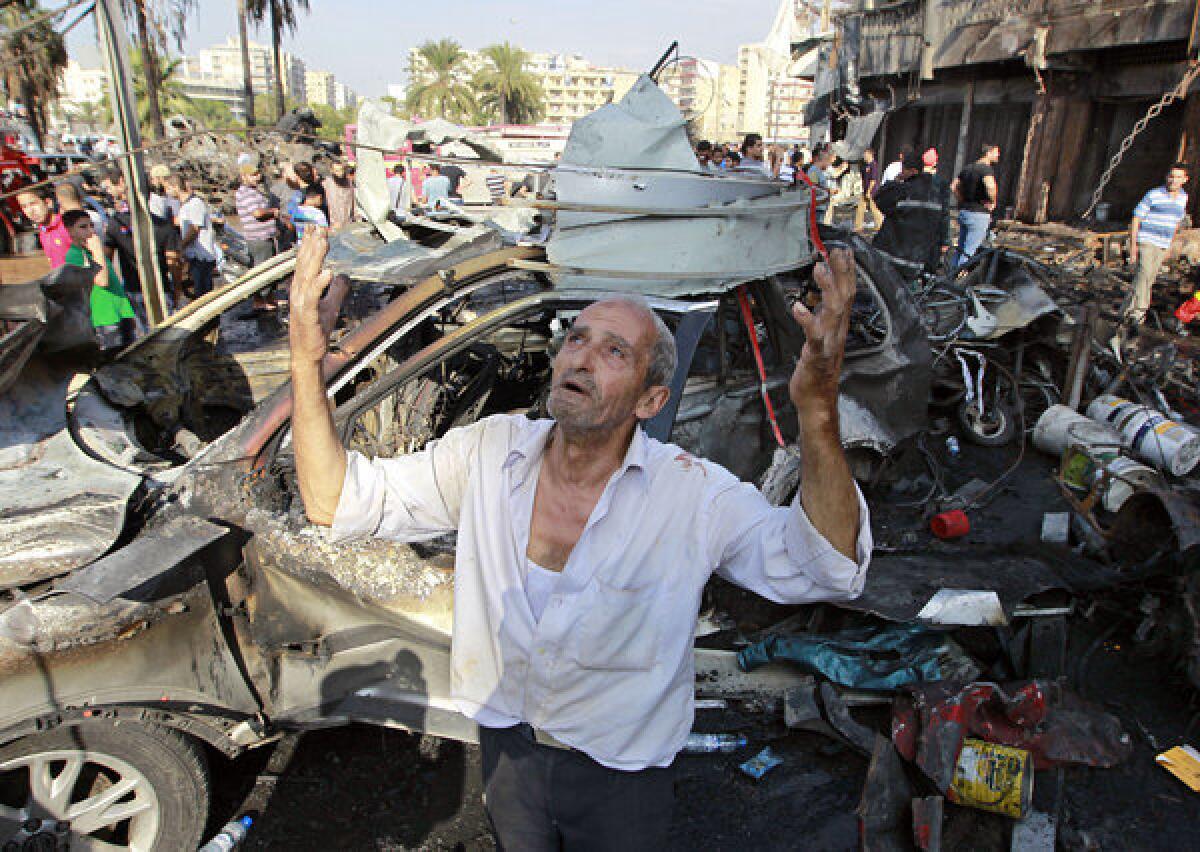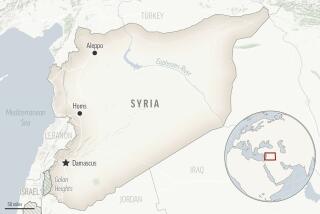Toll rises in deadly explosions outside two Lebanon mosques

BEIRUT -- The toll from a pair of explosions outside two mosques in the northern Lebanese city of Tripoli on Friday has risen to at least 29 with hundreds wounded, authorities said.
The explosions appeared to be the latest in a series of attacks that have stunned Lebanon and stoked sectarian strife in the small but strategically situated Middle East nation, which endured a ruinous 15-year civil war that ended in 1990.
Tripoli has seen numerous outbreaks of violence since civil war ignited in neighboring Syria two years ago. Gun battles between supporters and opponents of Syrian President Bashar Assad in the coastal city have cost dozens of lives.
Local news accounts said two car bombs were detonated outside Sunni mosques Friday, a day when large numbers of worshippers gather for afternoon prayers. Video from the scenes showed cars ablaze and people running through the streets in panic.
By early evening, the Red Cross in Lebanon said at least 29 people had been killed and more than 500 injured in the explosions. Unofficial reports put the toll as high as 42.
In recent months, Lebanese officials have voiced fears that the nation’s security is increasingly under threat. The war raging in Syria has deepened the sectarian divide in Lebanon, where the population of 4 million is split about the conflict in which mostly Sunni Muslim rebels are fighting to oust the government of Assad, a member of the Alawite sect, an offshoot of Shiite Islam.
Lebanon has become a recruiting ground for militiamen fighting on both sides of the Syrian civil war. Weapons destined for armed factions inside Syria have been smuggled across the border from Lebanon.
Earlier this month, a car bomb placed in a densely populated area of the southern Beirut suburbs killed two dozen people and injured nearly 300. That attack appeared aimed at the district’s largely Shiite population.
A pair of well-known Sunni sheiks at the mosques targeted Friday survived the blasts, reports indicated. Both of the preachers had reportedly taken strong public stances against the Syrian government.
Various Lebanese leaders denounced the blasts as an attempt to stir up sectarian hatred. Such comments have become routine following deadly attacks in Lebanon.
ALSO:
North, South Korea agree to hold family reunions
As Obama expresses caution, aides consider air strikes in Syria
Gang rape of photojournalist shocks India; 1 arrested, 4 sought
Twitter: @mcdneville
Special correspondent Nabih Bulos in Salzburg, Austria, contributed to this report.
More to Read
Sign up for Essential California
The most important California stories and recommendations in your inbox every morning.
You may occasionally receive promotional content from the Los Angeles Times.










